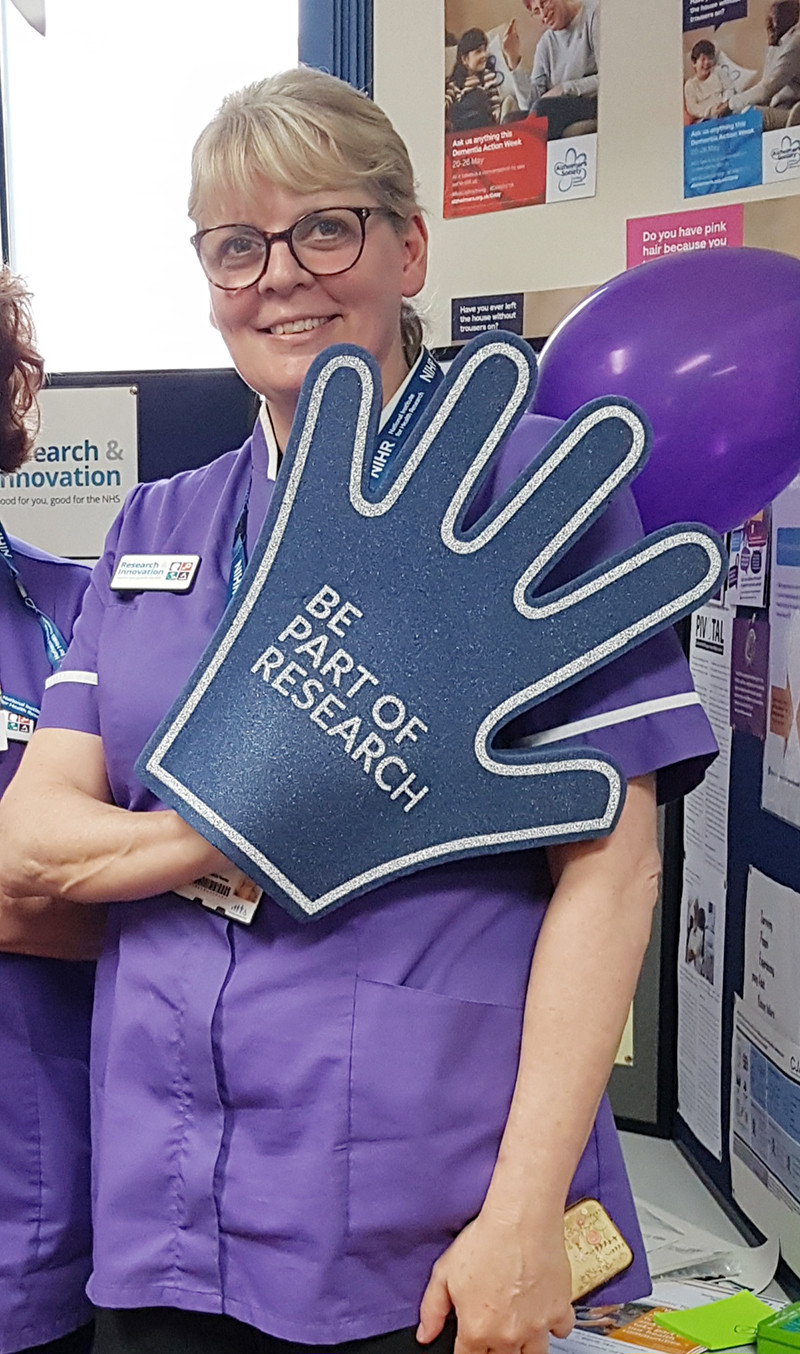
From Viagra to Covid, Ruth has helped raise the profile of research
A nurse is hanging up her uniform after more than four decades, and a career that included helping to develop new treatments and drugs.
Ruth Hulbert, lead research nurse at East Kent Hospitals, started her training at the Bromley School of Nursing in January 1984 and, after qualifying, worked in acute medicine and critical care. She also trained and worked as a midwife, before joining the pharmaceutical industry as a research nurse in 1992.
She was involved in early drug trials, helping to test medications that have since helped millions of people.
Ruth, who lives in Ashford, said: “From the first day of my training I loved nursing, and I have never looked back.
“When I started we still wore hats and the uniform policy was very strict – woe betide you if you were caught breaking it!
“The training was very different to now, and you were thrown in at the deep end - it really was ‘sink or swim’, and you could be in charge of a shift in your second year.
“Some people did drop out but, despite it being really challenging, I really enjoyed it and thrived.”
Ruth’s first research post was with the Wellcome Foundation, where she worked on very early phase trials to see how the human body handled brand new experimental drugs.
She said: “It was absolutely fascinating. I helped with trials of some of the very early monoclonal antibodies, and immunotherapy drugs, which are all standard practice now.
“When we relocated to Kent I worked for Pfizer, including on the trials involving the drug Sildenafil, which is better known now as Viagra®. It was initially a cardiovascular drug, but then trial participants started to experience unexpected side effects.
“I still talk about that now in training – people are used to the idea of adverse effects but it is important to find out about any effects. It was this information that eventually led to this drug being developed to successfully treat something else, in this case erectile dysfunction.”
Ruth was based at a research unit operated by Pfizer at the Kent and Canterbury Hospital, but it closed and she was made redundant in 2003. At around the same time, the cancer research networks were being set up across the NHS, and Ruth was employed to set up an oncology research team at the hospital.
She said: “At the time, NHS research mainly took place in big teaching hospitals, and the idea of the networks was to allow more people across the country to have access to research studies, regardless of where they lived.
“The cancer research network exceeded its target in just a few months, then other research networks began to evolve for other diseases, including stroke and diabetes.
“It is amazing to see how much research has grown since then. We now have studies in 20 different specialties across the Trust, which means more patients have the opportunity to take part, and in some cases, access the newest treatments that otherwise would not be available to them.
“A big moment for me was when we opened our first trials for multiple sclerosis. My dad had MS for many years and there were no effective treatments available for him during the 1980s and 90s, but now more and more new treatments are being developed through research, including treatments that can slow the progression of the disease.”
Ruth’s most memorable moments were during the Covid pandemic, when research was in the spotlight with the search for effective treatments and then a vaccine.
She said: “We opened many of the urgent Covid research studies within the Trust.
“The data we were collecting was directly informing the government’s advisory group, it was the only way out of the global pandemic caused by a new deadly virus that no-one knew anything about.
“It really helped get health research noticed and was a time when a lot of people finally understood what we do.
“The RECOVERY trial that we ran in East Kent Hospitals was testing potential treatments for Covid and the Prime Minister was talking about it in his daily updates!
“It showed what could be done, and to be part of the team at that time was an incredible privilege. I am very proud to have been a part of it, and the amount of work that went on and the speed at which it happened was unprecedented.”
Ruth has also been involved in raising the profile of research nursing nationally and locally, and would like to see more nurses follow in her footsteps, whether by supporting or delivering research or by developing and leading their own research.
She said: “There are direct benefits to patients and staff from research, and there is so much evidence that patient outcomes are better in organisations that are research active.
“I find it very humbling that our research participants are so willing to do something positive for future generations.
“People want to give something back, even if they might not directly benefit from the research themselves, and that has been a strong theme throughout the years.”
Ruth plans to spend more time with her family and friends, and is also getting married in February. Other retirement plans include more holidays and trying new hobbies.
She said: “I will miss the people most, so I may even come back as a volunteer – watch this space!”